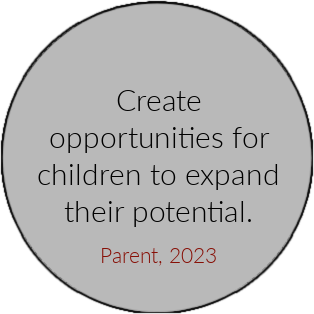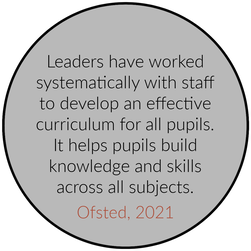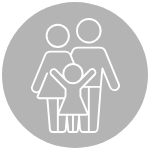Curriculum
SHINE in the Curriculum
Succeed
We want children to become confident and successful learners who achieve their very best by working together and constantly striving towards creating a cohesive community.
Happy
We will provide a fun, stimulating learning environment where each new day brings fresh challenges and rewards.
Inspire
Children will be inspired by our creative and imaginative approach to the curriculum, providing a firm foundation for lifelong learning.
Nurture
Early identification of pupils’ abilities serves to nurture individuals to become independent, lifelong learners.
Educate
We will treat children as individuals, carefully monitoring their progress and planning next steps on their learning journey to achieve the highest possible standards in everything we do.


We strive to ensure a broad, balanced and stimulating curriculum which engages and challenges children’s learning and takes into consideration their cultural and linguistic diversity. We aim to create a happy learning environment which enables all pupils to excel, both academically and socially, so that they are confident, self-assured and well equipped for each stage of their life. All children are inspired to become independent learners and succeed; their achievements are celebrated.
Click on the buttons below to find out more about our curriculum. For each subject, you will find an overview of the subject across each year group, as well as what is offered beyond this. The overview and offer for each subject is complimented by a range of progression documents; each subject’s Progression in Language, skills and Progression in Questioning.
If you would like further information about our curriculum, please speak to your child’s teacher or contact through the school office.
Core Subjects
Linked Curriculum
The themed Link Curriculum comprises of: Science (core subject), History, Geography, Art and Design and DT.
Approximately each term a year group will have a different theme. Within these themes, children will study the scientific, historical, geographic, artistic and design aspects related to this theme. The themes chosen allow children to build on their knowledge, skills and understanding during a lesson, term on term and year on year. For example: in the first half of the Autumn Term, Year 5’s theme is ‘Come Fly With Me’. They will study aspects of flight relating to Science, Geography, Art, DT, ICT as well as the History of flight. For example, in Science they will learn about air resistance and how this affects flight; in Art they will learn how to portray motion and in History they will learn about the impact of significant individuals in the development of flight, such as the Wright Brothers and George Cayley. At Bantock, we believe that by making cross-curricular links, learning becomes contextualised and a deeper understanding of topics prevails.
We ensure that there are opportunities for children of all abilities to develop their skills and knowledge in each unit and we build planned progression into the long, medium and short term plans so that the children are increasingly challenged as they move up through the school. We build on the knowledge, skills and understanding set out in the National Curriculum through the corresponding programme of study and these progress through each year and year on year. If you wish to read the National Curriculum for key stages 1 and 2, then click here
Stand Alone Subjects
Although links are made where appropriate, the subjects of RE, Music, MfL, PE, and Computing Skills, are taught as stand alone subjects.
.
Enrichment
Personal Development and Relationships (PDR) includes Personal, Social, Health Education (PSHE) and Relationships and Sex Education (RSE) and Health Education.
Due to the unique demographic of Bantock Primary School, we aim to provide children with an education that prepares them for the opportunities, responsibilities and experiences of adult life. Effective Personal Development and Relationships (PDR), which encompasses PSHE, Relationships and Sex Education, and Health Education, is essential to enable children to make informed decisions about their lives.
Other Learning
Technology
Technology encompasses computing skills including Computer Science and ICT as well as digital safeguarding through digital literacy. These skills are mainly taught through the standalone subject of Computing, and used across the whole curriculum.
Cultural Capital
Bantock Primary School knows the importance of building on knowledge, skills and understanding to ensure that pupils always be their best and prepare them for future success. The school is committed to ensuring that the curriculum supports recapping and building upon prior knowledge, as well as providing language rich activities that will enrich their learning through the environment and experiences that they have. This is particularly important within a setting where a diverse community can be used to support enriching the experiences for all pupils to create a rich and varied curriculum that builds on their previously learning.
Achieving cultural capital beyond the curriculum ensures that children are prepared with the knowledge, skills and understanding needed for their lifelong learning opportunities. Through the curriculum, the environment and the extended learning curriculum (e.g. Outdoor Learning, Visits and Visitors), pupils will be provided with opportunities to nurture a mindset of excitement, curiosity, resilience and creativity which promotes effective learning and builds on their existing knowledge.
British Values and Global Values
In September 2014, The Department for Education introduced a statutory duty for schools to promote and teach British Values more actively in schools. In addition to that, at Bantock, we are a partner school of the Global Learning Programme and, as a result, we place a strong significance on teaching the knowledge, skills and values in line with Global Learning: a discipline concerned with exploring the interconnections between people and places in the world. See our page on Global and British Values for more information.
Outdoor Learning
Forest School is a holistic approach to learning, incorporating children’s individuality and develops their skills for lifelong learning. Forest School explores the outdoors and the natural environment with practical, useful activities all year round. It develops peer learning with the adults providing support and enabling activities to take place. The child’s interest will be at the heart of any activity. Forest School aims to assist with the SMSC development of children, however, the overarching aim of outdoor learning is to utilise the school grounds to enhance the childrens’ learning. Teachers are aware that certain learning activities lend themselves well to be delivered in an outdoors environment. For example, in English, the children might use their senses to describe the sounds, sights and smells of autumn for the benefit of their descriptive writing. Similarly, in History, we can use the space available on the playground to construct a scaled timeline of human history to heighten children’s understanding of chronology.
SEND Curriculum Access
All pupils are entitled to a broad and balanced relevant curriculum including the Early Years Foundation Stage (EYFS) Curriculum and the National Curriculum, as appropriate to their key stage and stage of development. These are the methods by which entitlement is met and access for all pupils is secured.
The school makes provision for increased curriculum differentiation, curricular adaptions and pastoral or disciplinary procedures dependent on the child’s strengths and weaknesses. For more information, please see the SEND Information Report.
|
Rights Respecting School Convention on the Rights of the Child |
28 – Access to Education 29 – Aims of Education 31 – Rest, Play, Culture, Arts |

